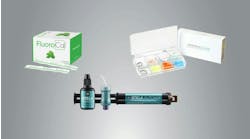by Joe Blaes, Editor
I am sure that the news of the death of a 12-year-old boy from Prince George’s County, Md., has affected many of you. According to an article in The Washington Post on February 28, Deamonte Driver died of a toothache. By the time Deamonte’s aching tooth got any attention, the bacteria from the abscess had spread to his brain, according to his doctors. After two operations and more than six weeks of hospital care, the boy died.
We all agree that the loss of a life from an abscessed tooth is a waste. A simple filling when the decay first appeared would have saved this boy’s life. At some point, an endodontic treatment or a simple extraction and some antibiotics would have stopped the infection and saved his life. For various reasons, he never received the proper care.
Dentistry is taking a lot of the heat in the press. According to the articles that I have read, we are responsible for this death because Deamonte’s mother could not find a dentist to treat her child’s tooth. Most of the national dental organizations have made statements about access to care and the broken Medicaid dental system. But very little has been said about personal responsibility.
Within a week of the newspaper article, Mike Spinney wrote an article titled, “Counterpoint to DC death.” A Massachusetts journalist, Spinney, who happens to be married to a dental hygienist, offered a more conservative viewpoint about the death from dental neglect in Spot-On, a journalism Web site (www.spot-on.com).
Mr. Spinney writes that this death is “proof that our health-care system is in shambles and it cost an innocent boy his life. Or so some would have us believe.”
He cited the Post as saying “a routine $80 tooth extraction would have saved the kid.” But Spinney counters with, “In truth, a $1 toothbrush and a parent who cared enough to make sure her child used it each day would have saved him by making certain the problem never got to a point necessitating extraction. It also would have saved the six teeth [the reporter] says are rotting out of the head of Deamonte’s brother.”
Spinney writes, “Nowhere in [the] story is the issue of parental responsibility raised. Nowhere in the story is there any hint as to the numerous options available to the Driver family that would have averted tragedy and that would not have cost much, if anything.”
The Spot-On journalist pointed out the dental hygiene and dental schools in the Washington, D.C., area that “have excellent programs and operate clinics where unusual or advanced treatment cases are desired because they afford students an opportunity to learn important skills by performing difficult or unusual treatments.”
While Spinney acknowledged the tragedy of the boy’s death, he adds, “I can’t bring myself to overlook the real story here. It’s tough to get a kid to brush his teeth, and even more difficult to get them to go to the dentist from time to time, but it’s a parent’s job to see to it that they do. Last Sunday, a child died needlessly, and not because of any particular problem with the health-care system, but because we have been conditioned to rely on the government to meet our most basic needs, and to absolve us of our most basic responsibilities.
“A caseworker isn’t needed to teach a kid how to brush their teeth, and you don’t need insurance to buy a toothbrush. No matter. It’s the government’s fault, according to one advocate interviewed by [the newspaper].”
Then, with a touch of sarcasm, Spinney concluded, “The Drivers weren’t able to find a free dentist, but it’s good to see that they were able to find a free lawyer.”
We must all do all that we can to stop a tragedy like this from happening again, but we must redouble our efforts to educate this segment of our population about the basics of dental care. Let the death of this young boy stir all of us to find new ways to help everyone have access to dental care.






